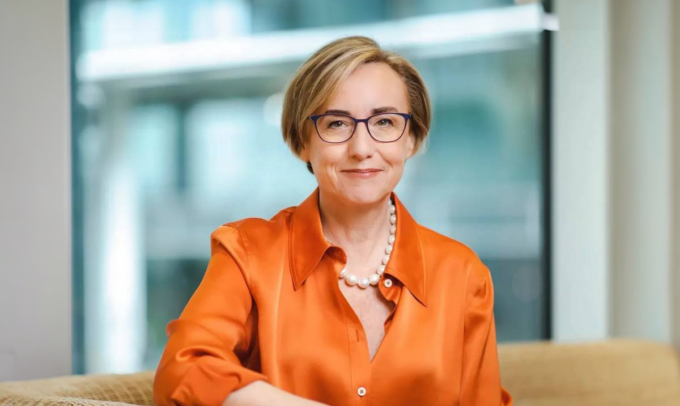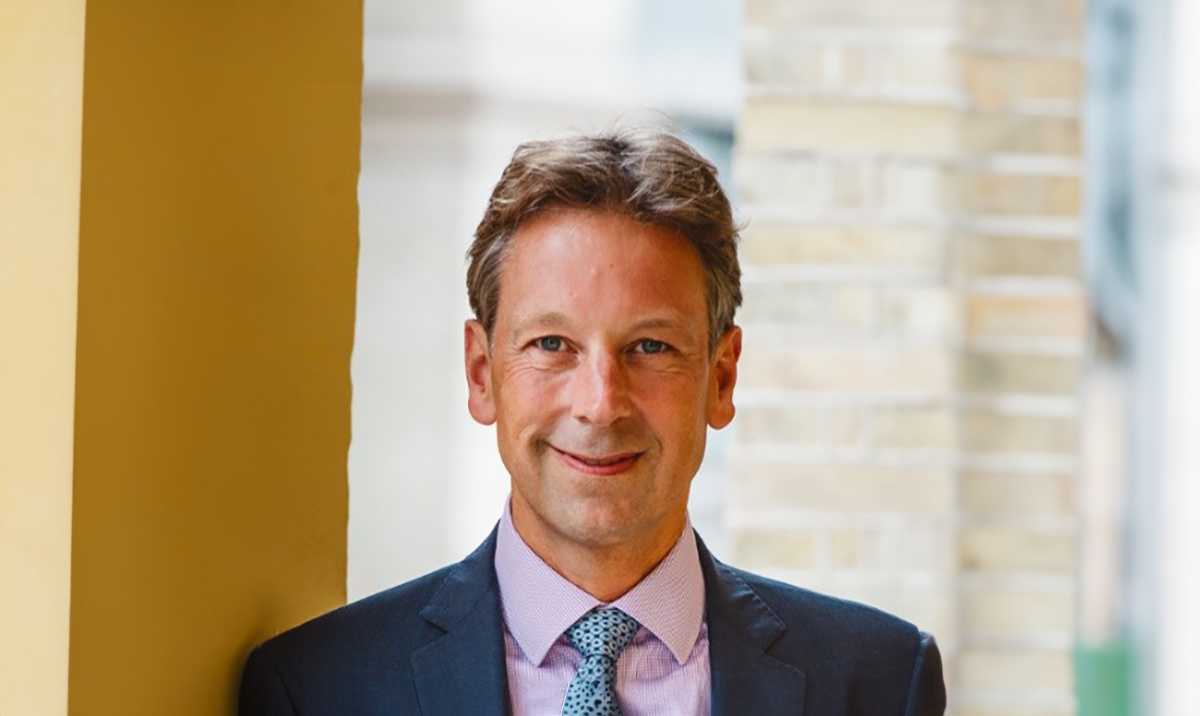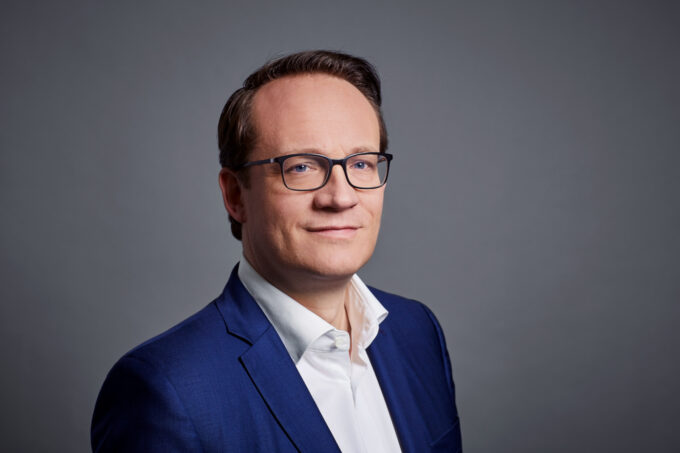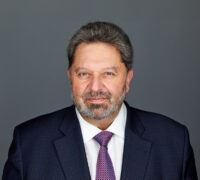
The CFO as architect of change: Designing banking’s digital transformation
Sabine Abfalter, CFO of Austria’s Raiffeisen Bank International, explores how finance leaders can support a bold vision for the future of banking....

by Jean-François Manzoni Published May 23, 2025 in Talent • 7 min read
CFOs are increasingly being tapped for CEO roles in leading organizations around the world. According to Crist Kolder Associates, more than 8% of CEO positions in Fortune 500 and S&P 500 firms were filled by chief finance officers in 2023, the highest proportion in more than a decade. Around 15% of today’s FTSE 100 CEOs previously served as CFO.
The pathway from CFO to CEO is becoming well-trodden, and there are good reasons for this. In a volatile world, CFOs can combine financial expertise and analytical power with leadership, strategic, risk management, and business model understanding to provide a steady hand at the helm. What’s more, according to one survey by headhunters Egon Zehnder, an overwhelming majority of CFOs report that their role in the business has expanded significantly over the last five years, making them better placed than ever to step into the top job.
Even so, success is not guaranteed. There are leadership and capability shifts that CFOs transitioning to CEO will need to negotiate: from a perspective emphasizing optimization and risk management to one incorporating more focus on driving growth, and from functional to enterprise leadership, with the desire and ability to align, inspire, and mobilize the entire organization and key external stakeholders. Leaders will face significant challenges in making this transition.
Over the past year, I’ve had the privilege to talk in-depth with four talented and thoughtful chief executives who built careers as CFOs before stepping into the CEO role. Here are a selection of the lessons, insights, and observations they have generously shared.


“I’d been a CFO for around 25 years, so I feel I have outlived that dream and it’s been wonderful, but somehow I really enjoy the freedom of my new role.”
Jakob Stausholm’s career includes a stint as chief internal auditor at energy major Royal Dutch Shell, as well as finance and strategy roles at global shipping company A.P. Moller-Maersk and facilities group ISS. He was CFO with Rio Tinto from 2018 to 2020.
“I’d been a CFO for around 25 years, so I feel I have outlived that dream and it’s been wonderful, but somehow I really enjoy the freedom of my new role,” he explains. “As CFO, you must be extremely diligent. You need to know all the numbers. Here, it’s much more about attention, energy, and relationships. It’s a more holistic challenge.”
An important part of relationship-building, Stausholm believes, is leading with empathy and compassion – something he has consciously worked on over the years. “It’s quite rewarding, the more you use compassion and empathy to try to understand somebody and what they’re trying to achieve. When you do that, you also very often get the best things out for your own company.
“Maybe some people are born as perfect leaders. I wasn’t born a perfect leader, but you can learn an awful lot. You go out and say, ‘Now I’m the CEO, we’re going to do this.’ And you know what happens? Absolutely nothing. You must cultivate deeper connections and bring hearts and minds with you.”
Watch the full CEO Dialogue here.
I strongly believe in empowerment, enablement, and fostering an open feedback culture. I encourage everyone to be brave and venture new ideas and concepts.- Carsten Knobel, CEO at Henkel
Knobel has spent almost 25 years with Henkel, including eight as CFO, a role he likens to that of a co-pilot. “When I was the CFO, I always held the concept that the CFO or the financial director is a kind of co-pilot of the plane or the company. As a co-pilot, you support the decisions, offer opinions, and have an impact, but, ultimately, you’re not the final decision maker.”
However, transitioning to “final decision maker” does not mean making decisions alone. Stepping up to CEO is still about teamwork, he says. “I strongly believe in empowerment, enablement, and fostering an open feedback culture. I encourage everyone to be brave and venture into new ideas and concepts. In the end, you’re not winning this game alone. You can have many individual players, but if you’re not working as a team, it’s not possible to win.”
Then, there is the shift from efficiency to growth. “Efficiency comes to an end at a certain point. You can’t continue doing this indefinitely. If you want to develop, aspire, and survive in the long term, you need to incorporate a growth component – that’s the only way to attract and convince customers and consumers.”
Watch the full CEO Dialogue here.

Markus Krebber spent almost five years as CFO with energy multinational RWE before becoming CEO in 2021. During this period, he says, he built a strong, holistic understanding of his organization and its commercial context – something he has leveraged to pick up the mantle of chief executive and run with it.
“Knowing energy through the commercial lens in trading definitely helped. (But then), becoming CFO means you get to see the entirety of the group. So, you already understand all of the businesses within the group in depth and through a financial lens. This gives you a strong starting position (to become CEO) because you know the different divisions, not just the one you ran before. That is a big advantage.”
Leveraging everything learned as CFO is key to transitioning to CEO, says Krebber. So is having the humility to defer to expertise, even, and perhaps especially, when that expertise is to be found in your replacement.
“Honestly, I am probably too risk-tolerant to be a really good CFO. We have an excellent CFO now, and he is a bit more risk-averse than I am, which is good!”
Watch the full CEO Dialogue here.

Professor of Leadership and Organizational Development at IMD
Jean-François Manzoni (JFM) is Professor of Leadership, Organizational Development and Corporate Governance at IMD, where he served as President and Nestlé Professor from 2017 to 2024. His research, teaching, and consulting activities are focused on leadership, the development of high-performance organizations and corporate governance. In recent years JFM has also been increasingly focused on finding ways to ensure leadership development interventions have lasting impact, particularly through the use of technology-mediated approaches, and on closing the growing managerial “knowing-doing gap”, i.e., the gap between what managers kind of know they should be doing and the extent to which they actually behave that way in practice.

May 1, 2025 in CFO Horizons
Sabine Abfalter, CFO of Austria’s Raiffeisen Bank International, explores how finance leaders can support a bold vision for the future of banking....

April 23, 2025 • by Karl Schmedders in CFO Horizons
CFOs must drive a financially disciplined way to manage environmental risks amid growing pushback against environmental sustainability efforts, explains IMD’s Karl Schmedders....

March 17, 2025 • by Arturo Bris in CFO Horizons
As AI reshapes finance functions, CFOs are positioned to harness unprecedented productivity gains, provided they address the accompanying regulatory and workforce challenges, says IMD’s Arturo Bris...

March 10, 2025 • by José Parra Moyano in CFO Horizons
José Parra Moyano of IMD outlines why a lot of AI projects fail and advises CFOs to put more emphasis on staff buy-in, data preparation, and business value....
Explore first person business intelligence from top minds curated for a global executive audience